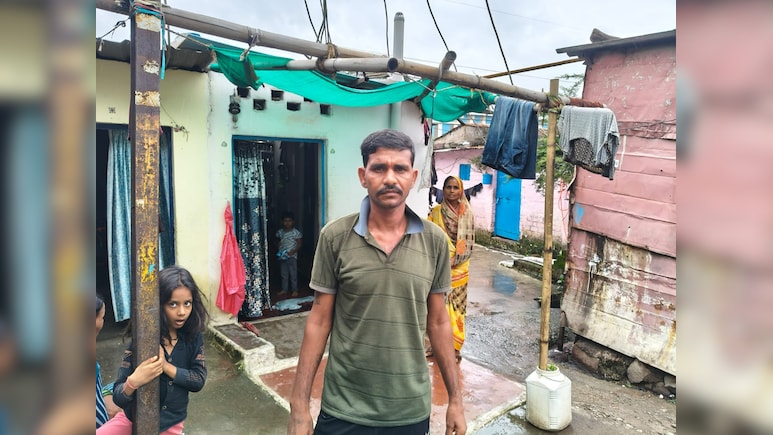
In a cramped, makeshift room in Bhopal's Adarsh Nagar slum, Rajesh Vishwakarma sits quietly, trying to piece together a life that was unjustly snatched away from him. For 395 days, he lived in jail -- not because he committed a crime, but because he tried to help someone.
A daily-wage laborer with no land, no parents, and no legal awareness, Rajesh became yet another invisible casualty of a flawed, apathetic system that punished his humanity.
On June 16, 2024, he took an unwell woman from his neighborhood to a nearby hospital near DIG Bungalow. She was in pain, and Rajesh did what any decent human being might have -- got her treated and left for work. By evening, the woman had died. And the next morning, Rajesh was arrested for murder.
"I just took her to the hospital because she asked me," Rajesh said, his voice heavy with disbelief. "By evening, the police picked me up, interrogated me, and the next day I was arrested. I told them I had taken her for treatment. They didn't let me talk to my family. I was kept at the police station for nine days, then sent straight to jail. I had no money to hire a lawyer," he added.
His rented room was locked by the police without warning, leaving him homeless.
"Now, I have to pay 13 months' rent. No one is giving me work. Everyone says I have come from jail. I was innocent, yet I stayed behind bars. I have no land, no parents, nothing... I have been defamed too," he added.
For over a year, Rajesh languished in jail without trial, with no access to legal counsel or family. His sister Kamlesh, already struggling to support her own family, was informed nine days after his arrest.
"They called me at 4 pm and asked me to come to court. I was alone and couldn't go. When I met him a week later, he told me everything. When I went to the police station to collect his Aadhaar card and phone, they made me run around and then demanded 500 rupees to return them. It was another expense for us. He is trying to do something now, but if the police had investigated properly, this would never have happened. No one in our family is educated. I used to visit him when I could," she said.
The court eventually declared Rajesh innocent. But the road to justice was paved not by the police, but by court-appointed legal aid lawyer Reena Verma.
"He had no money to hire a lawyer. The court appointed me, and we work with complete honesty to ensure justice is served. This is a completely free facility," she said.
But the price Rajesh paid was still enormous. The investigation that put him behind bars was riddled with negligence.
"There were documents that showed the woman died due to illness, but the postmortem said it was death by strangulation. The police didn't collect CCTV footage from the hospital. The medical report showed inconsistencies in the clothing of the deceased. It wasn't even clear who the woman was. On what basis was the man who dropped her off accused of murder? There was no evidence. The investigation was careless and weak," Ms Verma added.
This miscarriage of justice isn't an isolated case. According to the Prison Statistics India 2022 and the India Justice Report 2025 of the National Crime Records Bureau or NCRB, a staggering 75.8 per cent of prisoners in Indian jails are undertrials.
In Madhya Pradesh alone, 6,185 undertrial prisoners have been incarcerated for more than a year -- not convicted, just waiting for their day in court.
The average annual cost per prisoner in the state is Rs 27,865, and the prison population is at 164 per cent capacity. 24 per cent of prisoners in Madhya Pradesh have been undertrials for one to three years.
Rajesh's life is now in limbo. Cleared by the court, but burdened by stigma, poverty, and loss, he speaks little. His pain is in his silence, his courage in his survival.
"Who will compensate me for 13 lost months?" he asks, not expecting an answer. The police station from where his ordeal began has not been questioned. The officers who destroyed his life still hold their positions.
Now, though the court has said "he is innocent," the real question remains -- will he ever get his time, dignity, and identity back? Or will he forever remain the man who went to jail for trying to help?
Track Latest News Live on NDTV.com and get news updates from India and around the world

